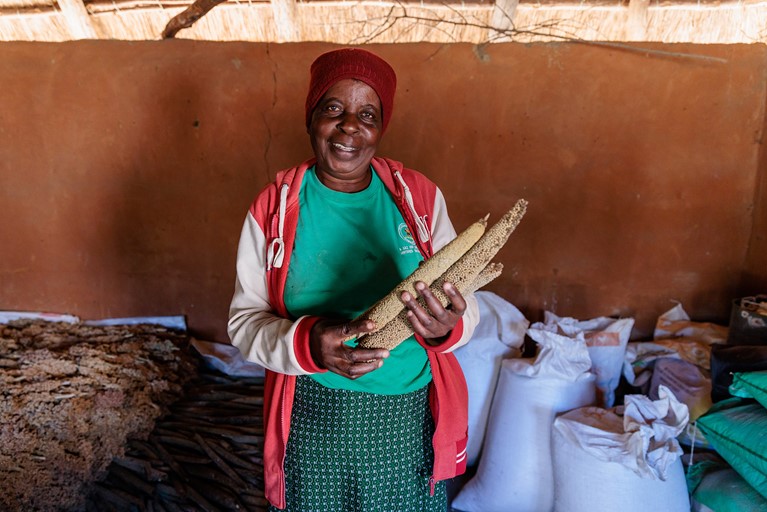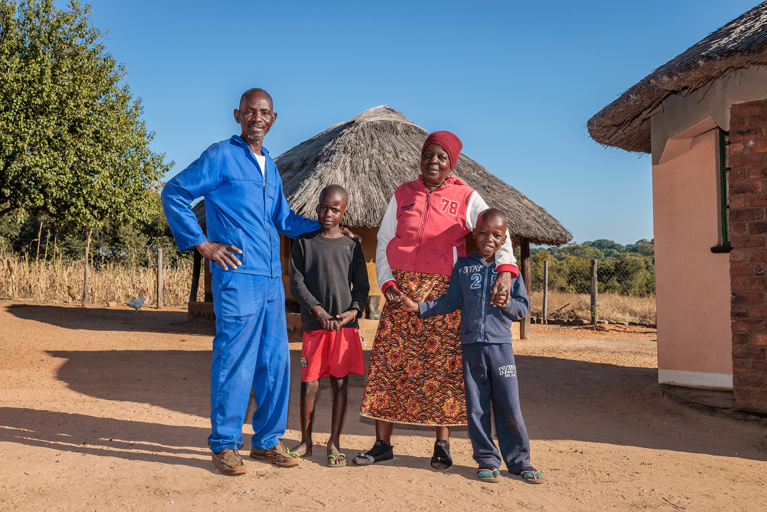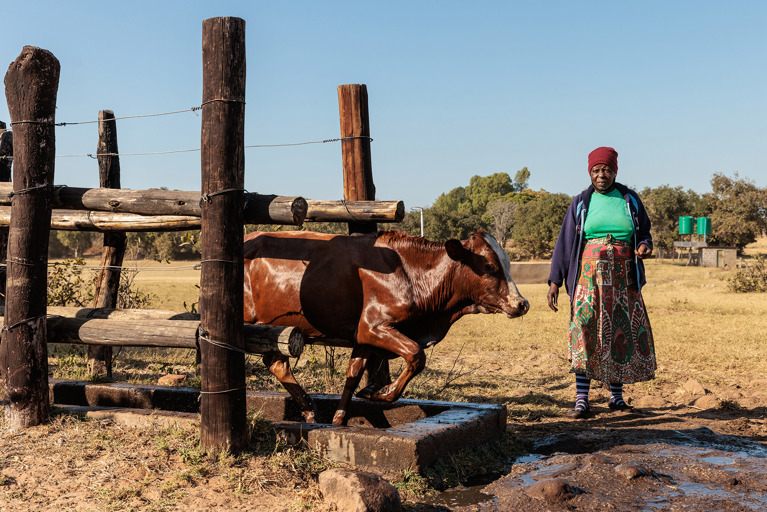Empowering Communities: Caritas Australia's Impact in Zimbabwe
11 Apr 24
In the heart of Zimbabwe, many in the community are grappling with hyperinflation, widespread poverty, and political unrest. Chronic malnutrition, exacerbated by food shortages, a struggling healthcare system, and heightened rates of HIV infection plague the nation. All of these factors are what have pushed nearly half of Zimbabwe’s population of 7.9 million people into extreme poverty.
Priscilla’s Story
Meet Priscilla, a resilient grandmother from the Hwange region, whose journey embodies the transformative power of sustainable initiatives facilitated by our longstanding partner Caritas Hwange and supported by people like you.
Climate change has brought challenges to vulnerable communities like Priscilla's, amplifying food insecurity and threatening livelihoods. Erratic rainfall patterns, prolonged dry spells, and soaring temperatures have become the new norm, disrupting traditional agricultural practices, and pushing families to the brink of hunger.

"We had plenty of rains at first but as time has gone by, the rains have become erratic and hence the yields have been reduced,"
The repercussions of these environmental shifts caused by climate change create severe vulnerability for people like Priscilla, her husband, and her grandchildren. In 2022, an intense dry spell devastated crops, leaving many families at risk of extreme hunger. Children, particularly girls, found themselves unable to attend school to instead help their families resource food.
For Priscilla, the impact of these challenges were deeply felt. The stress of not knowing what to give her grandchildren to eat, when there was nothing to give, was what no grandmother or parent should face.
Program snapshot: Zimbabwe Integrated Community Development
While the situation in Zimbabwe and across eastern Africa remains dire, the work of Caritas Hwange means that Priscilla can learn the techniques, tools and resources she needs to build resilience and support her family during this current food crisis.
The program focuses on improving food security, nutrition and income as well as strengthening access to clean water so that children can stay healthy and spend more time at school instead of walking long distances to collect water.
Along with your generous support, this program is supported by the Australian Government, through the Australian NGO Cooperation Program (ANCP).
How this program helped Priscilla and her community
Through this program, Priscilla and her community learned conservation farming techniques, cultivating drought-resistant crops. The shift from traditional methods to conservation farming yielded a bountiful harvest, marking a turning point in their journey towards self-sufficiency.
"Our biggest challenge as a family was mainly food insecurity due to the farming method we used. However, Caritas Hwange came in with the idea of implementing Gachompo (conservation farming), which tremendously improved our crop germination rates," reflects Priscilla.

With newfound knowledge and resources, Priscilla not only secured her family's food supply but also embarked on poultry farming, leveraging the sale of eggs to support her grandchildren's education.
The ripple effects of empowerment spread as Priscilla shared her expertise, fostering a culture of collaboration and resilience within her community.
“We are very happy to have been introduced to conservation farming. Even for those who have no knowledge of it, we try to assist them. That’s why we work in groups,”
Partnership and Compassion in Action
As Priscilla's story illustrates, the partnerships we have with Caritas Hwange, the Australian Government, and the support of people like you, are what made Priscilla’s transformation possible.
Through your generous support, some of the most vulnerable people in Zimbabwe can also be equipped with the tools and knowledge to navigate the challenges of climate change, hyperinflation, widespread poverty and political instability.
"We are indeed grateful to Caritas Hwange for the knowledge," expresses Priscilla. "Today we have knowledge and skills that we didn’t have before and are able to use to earn a living."
